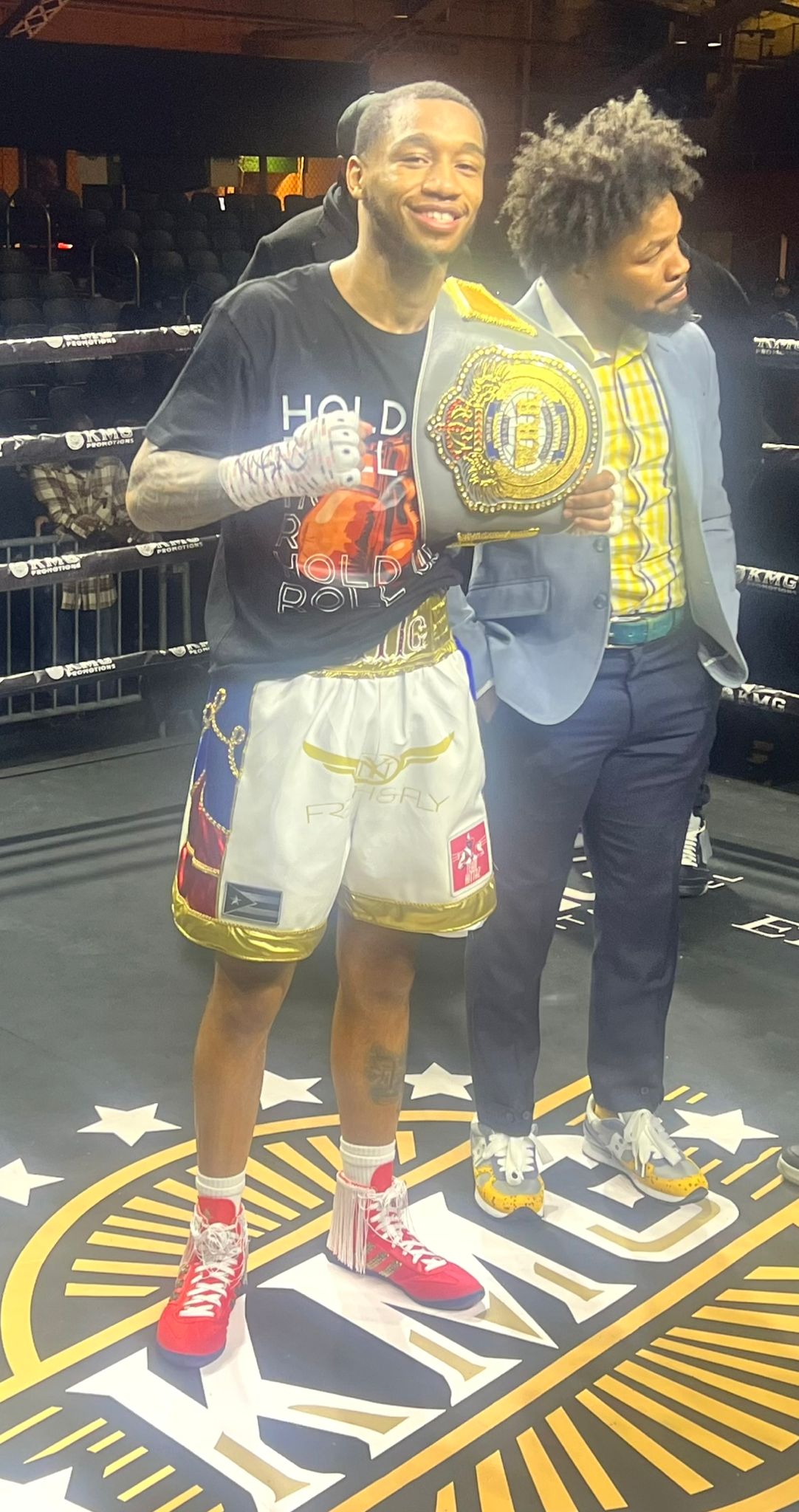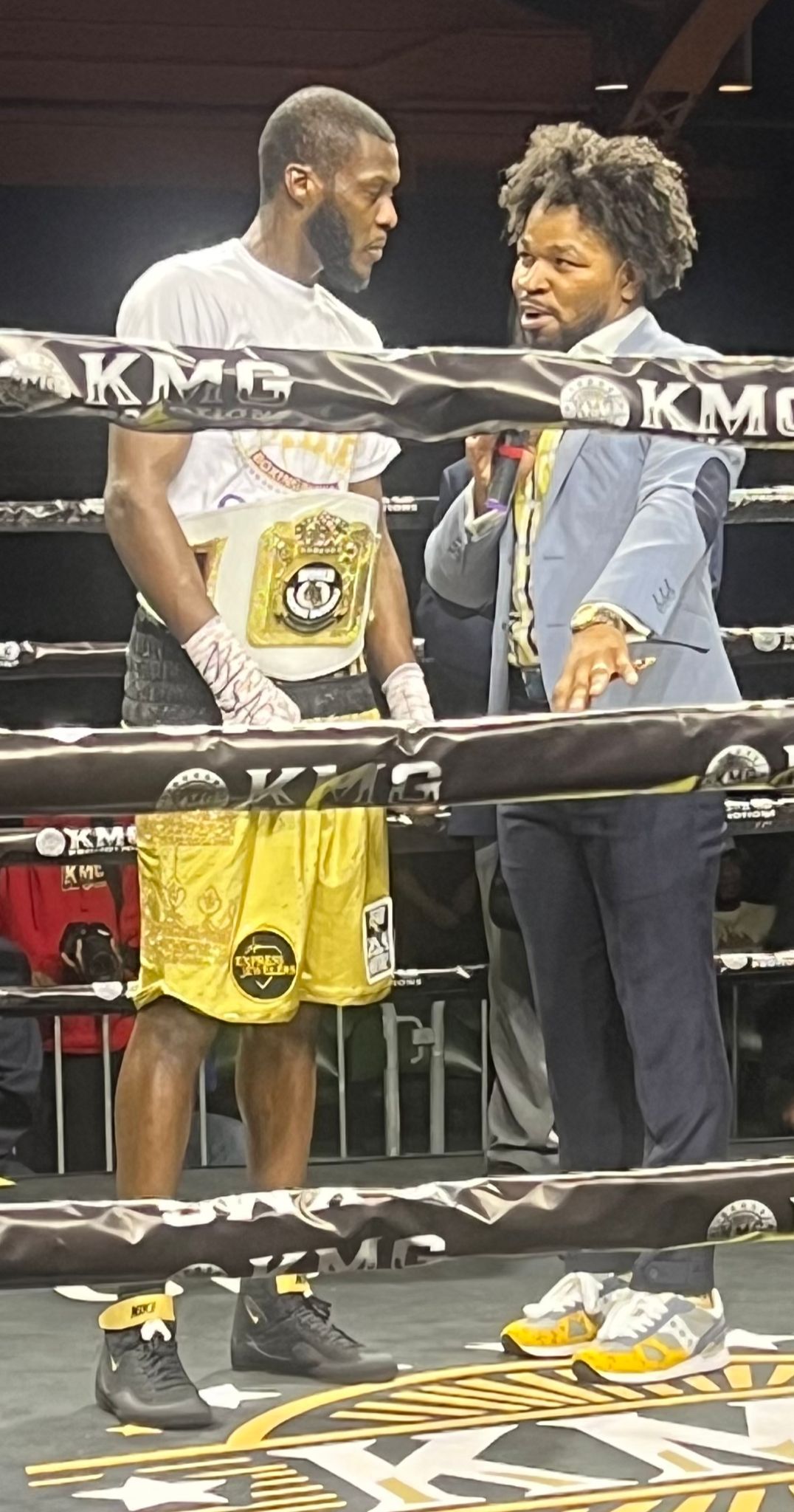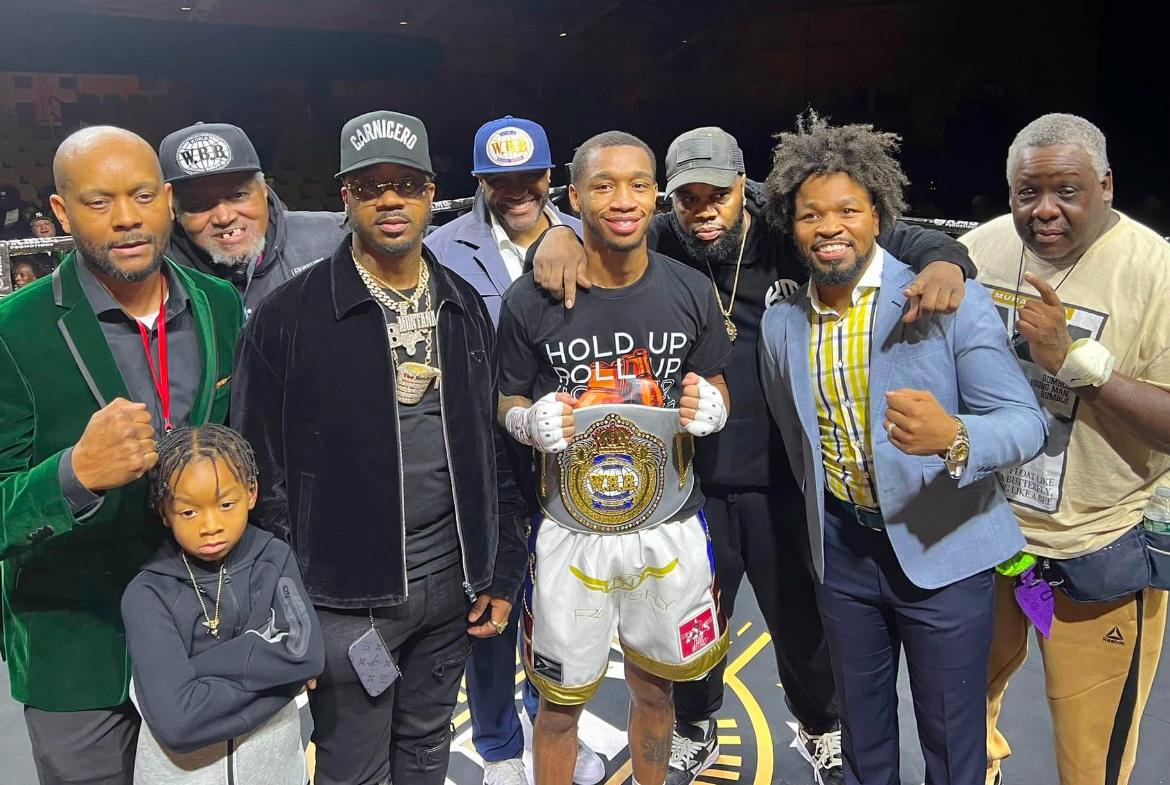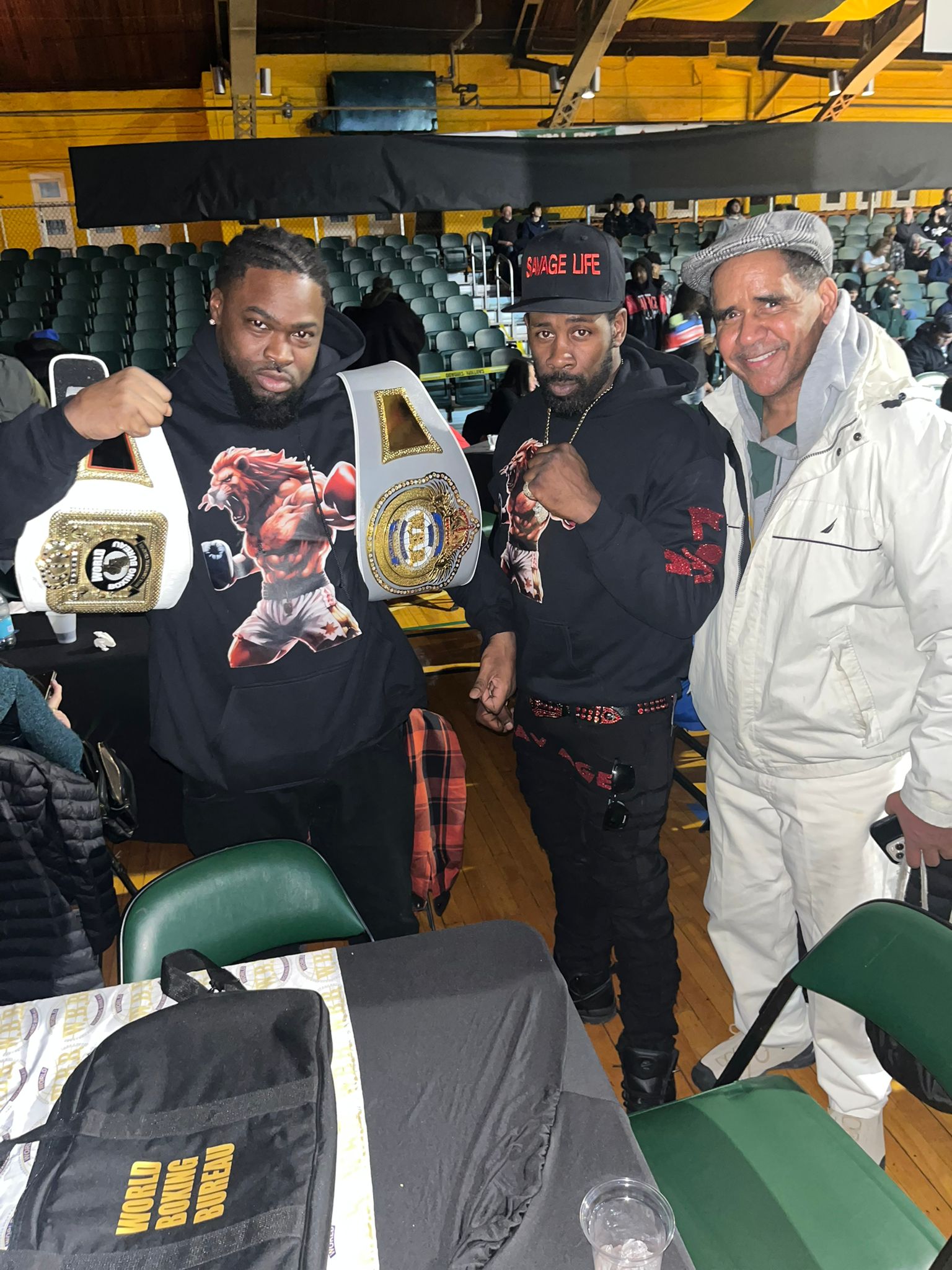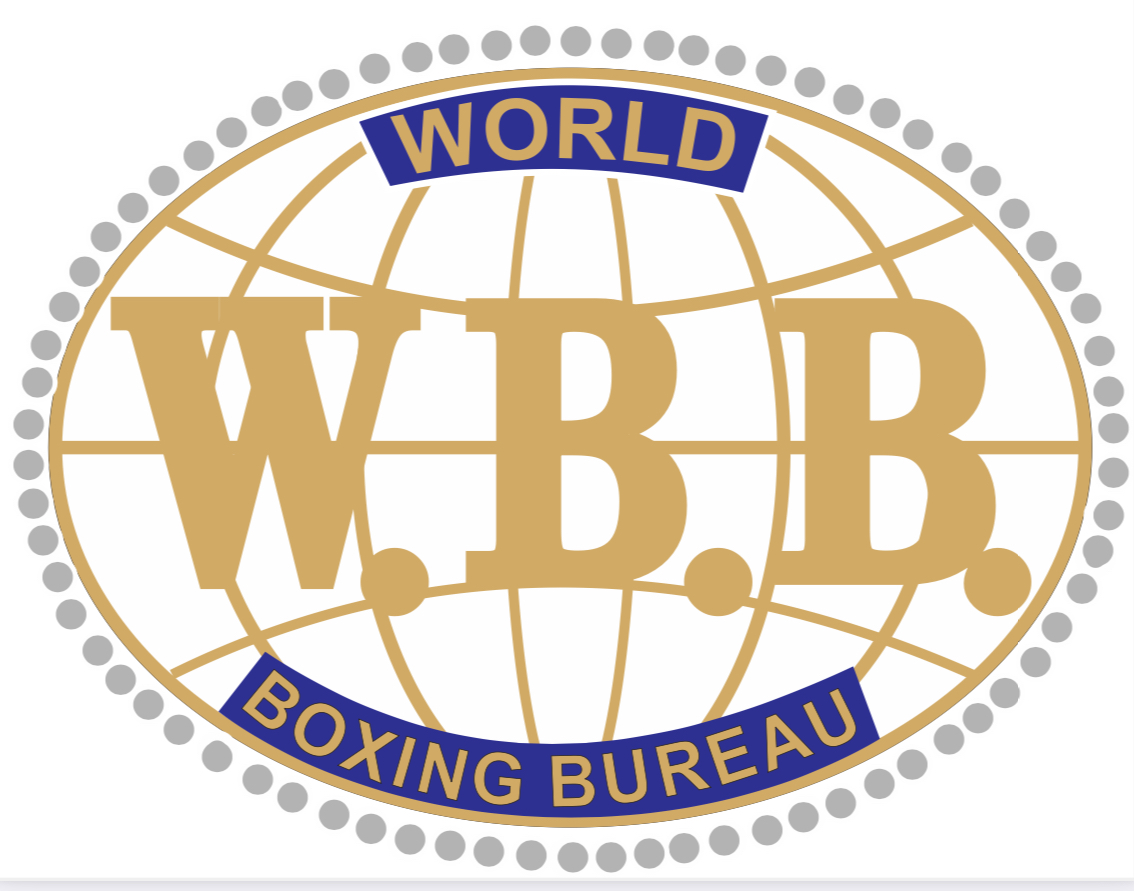
WORLD BOXING BUREAU
Letter From WBB CEO & President
Greetings Boxing World,
I am writing to reintroduce you to the World Boxing Bureau (WBB), a professional boxing sanctioning body with a rich history and an exciting new future. Originally established in 2005, the WBB has recently undergone a major transition, with new ownership taking the reins in November 2024. This change in leadership marks the beginning of an exciting new chapter, and we are reaching out to promoters, fighters, and industry stakeholders like you to inform you of our updated vision and goals. In 2025, the WBB is set to provide up-and-coming boxing prospects, both men and women, with the opportunity to compete for our prestigious championship belts. We aim to be a leader in the sport by ensuring that boxers from all corners of the world—regardless of gender or nationality—have a platform to showcase their talents and contend for a globally recognized title. Our mission is to crown both male and female champions in every weight division, offering a truly inclusive and competitive environment. To further support our vision, we will also be introducing Inter-Continental Championship belts—specifically designed to recognize outstanding boxers outside of the United States, ensuring that our global presence continues to grow. We are committed to working with promoters both nationally and internationally to make the World Boxing Bureau a respected and recognized organization within the boxing community. Our redesigned championship belts reflect our dedication to innovation and the future of the sport, and we are eager to partner with promoters who share our excitement for what lies ahead.
We invite you to join us in this thrilling new era of professional boxing, as we work to provide opportunities, inspire new champions, and continue the proud legacy of the World Boxing Bureau.
Please do not hesitate to contact us for further details, or to discuss potential collaboration opportunities. We look forward to working with you and your team to make 2025 a defining year for boxing worldwide.
Al-Rahim Burke
CEO & President
World Boxing Bureau (WBB)
MUHAMMAD ALI ACT
CHAPTER 89—PROFESSIONAL BOXING SAFETY
Sec.
6301.
Definitions.
6302.
Purposes.
6303.
Boxing matches in States without boxing commissions.
6304.
Safety standards.
6305.
Registration.
6306.
Review.
6307.
Reporting.
6307a.
Contract requirements.
6307b.
Protection from coercive contracts.
6307c.
Sanctioning organizations.
6307d.
Required disclosures to State boxing commissions by sanctioning organizations.
6307e.
Required disclosures for promoters.
6307f.
Required disclosures for judges and referees.
6307g.
Confidentiality.
6307h.
Judges and referees.
6308.
Conflicts of interest.
6309.
Enforcement.
6310.
Notification of supervising boxing commission.
6311.
Studies.
6312.
Professional boxing matches conducted on Indian reservations.
6313.
Relationship with State law.
§6301. Definitions
For purposes of this chapter:
(1) Boxer
The term “boxer” means an individual who fights in a professional boxing match.
(2) Boxing commission
(A) 1 The term “boxing commission” means an entity authorized under State law to regulate
professional boxing matches.
(3) Boxer registry
The term “boxer registry” means any entity certified by the Association of Boxing
Commissions for the purposes of maintaining records and identification of boxers.
(4) Licensee
The term “licensee” means an individual who serves as a trainer, second, or cut man for a
boxer.
(5) Manager
The term “manager” means a person who receives compensation for service as an agent or
representative of a boxer.
(6) Matchmaker
The term “matchmaker” means a person that proposes, selects, and arranges the boxers to
participate in a professional boxing match.
(7) Physician
The term “physician” means a doctor of medicine legally authorized to practice medicine by
the State in which the physician performs such function or action.
(8) Professional boxing match
The term “professional boxing match” means a boxing contest held in the United States
between individuals for financial compensation. Such term does not include a boxing
contest that is regulated by an amateur sports organization.
(9) Promoter
The term “promoter” means the person primarily responsible for organizing, promoting, and
producing a professional boxing match. The term “promoter” does not include a hotel,
casino, resort, or other commercial establishment hosting or sponsoring a professional
boxing match unless—
(A) the hotel, casino, resort, or other commercial establishment is primarily responsible for
organizing, promoting, and producing the match; and
(B) there is no other person primarily responsible for organizing, promoting, and producing
the match.
(10) State
The term “State” means each of the 50 States, Puerto Rico, the District of Columbia, and
any territory or possession of the United States, including the Virgin Islands.
(11) Effective date of the contract
The term “effective date of the contract” means the day upon which a boxer becomes
legally bound by the contract.
(12) Boxing service provider
The term “boxing service provider” means a promoter, manager, sanctioning body, licensee,
or matchmaker.
(13) Contract provision
The term “contract provision” means any legal obligation between a boxer and a boxing
service provider.
(14) Sanctioning organization
The term “sanctioning organization” means an organization that sanctions professional
boxing matches in the United States—
(A) between boxers who are residents of different States; or
(B) that are advertised, otherwise promoted, or broadcast (including closed circuit
television) in interstate commerce.
(15) Suspension
The term “suspension” includes within its meaning the revocation of a boxing license.
(Pub. L. 104–272, §2, Oct. 9, 1996, 110 Stat. 3309; Pub. L. 106–210, §7(a), May 26, 2000, 114 Stat. 327.)
Codification
Pub. L. 106–210, §7(a), which directed amendments to subsec. (a) of this section, was
executed as if it directed amendments to this section rather than to subsec. (a) of this
section to reflect the probable intent of Congress because this section does not contain a
subsec. (a). See 2000 Amendment notes below.
Amendments
2000—Par. (9). Pub. L. 106–210, §7(a)(1), inserted last sentence. See Codification note
above.
Par. (10). Pub. L. 106–210, §7(a)(2), inserted “, including the Virgin Islands” before the
period at end. See Codification note above.
Pars. (11) to (15). Pub. L. 106–210, §7(a)(3), added pars. (11) to (15). See Codification note
above.
Effective Date
Pub. L. 104–272, §23, formerly §15, Oct. 9, 1996, 110 Stat. 3314, as renumbered §23 by
Pub. L. 106–210, §4(1), May 26, 2000, 114 Stat. 322, provided that: “The provisions of this
Act [enacting this chapter] shall take effect on January 1, 1997, except as follows:
“(1) Section 9 [now section 17, enacting section 6308 of this title] shall not apply to an
otherwise authorized boxing commission in the Commonwealth of Virginia until July 1,
1998.
“(2) Sections 5 through 9 [enacting sections 6304 to 6308 of this title] shall take effect on
July 1, 1997.”
Short Title of 2000 Amendment
Pub. L. 106–210, §1, May 26, 2000, 114 Stat. 321, provided that: “This Act [enacting
sections 6307a to 6307h of this title, amending this section and sections 6303, 6305, 6306,
and 6308 to 6313 of this title, and enacting and amending provisions set out as notes under
this section] may be cited as the ‘Muhammad Ali Boxing Reform Act’.”
Short Title
Pub. L. 104–272, §1, Oct. 9, 1996, 110 Stat. 3309, provided that: “This Act [enacting this
chapter] may be cited as the ‘Professional Boxing Safety Act of 1996’.”
Findings
Pub. L. 106–210, §2, May 26, 2000, 114 Stat. 321, provided that: “The Congress makes the
following findings:
“(1) Professional boxing differs from other major, interstate professional sports industries in
the United States in that it operates without any private sector association, league, or
centralized industry organization to establish uniform and appropriate business practices
and ethical standards. This has led to repeated occurrences of disreputable and coercive
business practices in the boxing industry, to the detriment of professional boxers
nationwide.
“(2) State officials are the proper regulators of professional boxing events, and must protect
the welfare of professional boxers and serve the public interest by closely supervising
boxing activity in their jurisdiction. State boxing commissions do not currently receive
adequate information to determine whether boxers competing in their jurisdiction are being
subjected to contract terms and business practices which may violate State regulations, or
are onerous and confiscatory.
“(3) Promoters who engage in illegal, coercive, or unethical business practices can take
advantage of the lack of equitable business standards in the sport by holding boxing events
in States with weaker regulatory oversight.
“(4) The sanctioning organizations which have proliferated in the boxing industry have not
established credible and objective criteria to rate professional boxers, and operate with
virtually no industry or public oversight. Their ratings are susceptible to manipulation, have
deprived boxers of fair opportunities for advancement, and have undermined public
confidence in the integrity of the sport.
“(5) Open competition in the professional boxing industry has been significantly interfered
with by restrictive and anticompetitive business practices of certain promoters and
sanctioning bodies, to the detriment of the athletes and the ticket-buying public. Common
practices of promoters and sanctioning organizations represent restraints of interstate trade
in the United States.
“(6) It is necessary and appropriate to establish national contracting reforms to protect
professional boxers and prevent exploitive business practices, and to require enhanced
financial disclosures to State athletic commissions to improve the public oversight of the
sport.”
Purposes of 2000 Amendment
Pub. L. 106–210, §3, May 26, 2000, 114 Stat. 322, provided that: “The purposes of this Act
[see Short Title of 2000 Amendment note above] are—
“(1) to protect the rights and welfare of professional boxers on an interstate basis by
preventing certain exploitive, oppressive, and unethical business practices;
“(2) to assist State boxing commissions in their efforts to provide more effective public
oversight of the sport; and
“(3) to promote honorable competition in professional boxing and enhance the overall
integrity of the industry.”
1 So in original. No subpar. (B) has been enacted.
§6302. Purposes
The purposes of this chapter are—
(1) to improve and expand the system of safety precautions that protects the welfare of
professional boxers; and
(2) to assist State boxing commissions to provide proper oversight for the professional
boxing industry in the United States.
(Pub. L. 104–272, §3, Oct. 9, 1996, 110 Stat. 3310.)
Effective Date
Section effective Jan. 1, 1997, see section 23 of Pub. L. 104–272, set out as a note under
section 6301 of this title.
§6303. Boxing matches in States without boxing commissions
(a) No person may arrange, promote, organize, produce, or fight in a professional boxing
match held in a State that does not have a boxing commission unless the match is
supervised by a boxing commission from another State and subject to the most recent
version of the recommended regulatory guidelines certified and published by the
Association of Boxing Commissions as well as any additional relevant professional boxing
regulations and requirements of such other State.
(b) For the purpose of this chapter, if no State commission is available to supervise a boxing
match according to subsection (a), then—
(1) the match may not be held unless it is supervised by an association of boxing
commissions to which at least a majority of the States belong; and
(2) any reporting or other requirement relating to a supervising commission allowed under
this section shall be deemed to refer to the entity described in paragraph (1).
(Pub. L. 104–272, §4, Oct. 9, 1996, 110 Stat. 3310; Pub. L. 106–210, §7(e), May 26, 2000, 114 Stat. 328.)
Amendments
2000—Pub. L. 106–210 designated existing provisions as subsec. (a) and added subsec.
(b).
Effective Date
Section effective Jan. 1, 1997, see section 23 of Pub. L. 104–272, set out as a note under
section 6301 of this title.
§6304. Safety standards
No person may arrange, promote, organize, produce, or fight in a professional boxing match
without meeting each of the following requirements or an alternative requirement in effect
under regulations of a boxing commission that provides equivalent protection of the health
and safety of boxers:
(1) A physical examination of each boxer by a physician certifying whether or not the boxer
is physically fit to safely compete, copies of which must be provided to the boxing
commission.
(2) Except as otherwise expressly provided under regulation of a boxing commission
promulgated subsequent to October 9, 1996, an ambulance or medical personnel with
appropriate resuscitation equipment continuously present on site.
(3) A physician continuously present at ringside.
(4) Health insurance for each boxer to provide medical coverage for any injuries sustained
in the match.
(Pub. L. 104–272, §5, Oct. 9, 1996, 110 Stat. 3310.)
Effective Date
Section effective July 1, 1997, see section 23(2) of Pub. L. 104–272, set out as a note
under section 6301 of this title.
§6305. Registration
(a) Requirements
Each boxer shall register with—
(1) the boxing commission of the State in which such boxer resides; or
(2) in the case of a boxer who is a resident of a foreign country, or a State in which there is
no boxing commission, the boxing commission of any State that has such a commission.
(b) Identification card
(1) Issuance
A boxing commission shall issue to each professional boxer who registers in accordance
with subsection (a), an identification card that contains each of the following:
(A) A recent photograph of the boxer.
(B) The social security number of the boxer (or, in the case of a foreign boxer, any similar
citizen identification number or professional boxer number from the country of residence of
the boxer).
(C) A personal identification number assigned to the boxer by a boxing registry.
(2) Renewal
Each professional boxer shall renew his or her identification card at least once every 4
years.
(3) Presentation
Each professional boxer shall present his or her identification card to the appropriate boxing
commission not later than the time of the weigh-in for a professional boxing match.
(c) Health and safety disclosures
It is the sense of the Congress that a boxing commission should, upon issuing an
identification card to a boxer under subsection (b)(1), make a health and safety disclosure
to that boxer as that commission considers appropriate. The health and safety disclosure
should include the health and safety risks associated with boxing, and, in particular, the risk
and frequency of brain injury and the advisability that a boxer periodically undergo medical
procedures designed to detect brain injury.
(Pub. L. 104–272, §6, Oct. 9, 1996, 110 Stat. 3310; Pub. L. 106–210, §7(c), (f), May 26, 2000, 114 Stat. 328.)
Amendments
2000—Subsec. (b)(2). Pub. L. 106–210, §7(c), substituted “4 years” for “2 years”.
Subsec. (c). Pub. L. 106–210, §7(f), added subsec. (c).
Effective Date
Section effective July 1, 1997, see section 23(2) of Pub. L. 104–272, set out as a note
under section 6301 of this title.
§6306. Review
(a) Procedures
Each boxing commission shall establish each of the following procedures:
(1) Procedures to evaluate the professional records and physician’s certification of each
boxer participating in a professional boxing match in the State, and to deny authorization for
a boxer to fight where appropriate.
(2) Procedures to ensure that, except as provided in subsection (b), no boxer is permitted to
box while under suspension from any boxing commission due to—
(A) a recent knockout or series of consecutive losses;
(B) an injury, requirement for a medical procedure, or physician denial of certification;
(C) failure of a drug test;
(D) the use of false aliases, or falsifying, or attempting to falsify, official identification cards
or documents; or
(E) unsportsmanlike conduct or other inappropriate behavior inconsistent with generally
accepted methods of competition in a professional boxing match.
(3) Procedures to review a suspension where appealed by a boxer, licensee, manager,
matchmaker, promoter, or other boxing service provider, including an opportunity for a boxer
to present contradictory evidence.
(4) Procedures to revoke a suspension where a boxer—
(A) was suspended under subparagraph (A) or (B) of paragraph (2) of this subsection, and
has furnished further proof of a sufficiently improved medical or physical condition; or
(B) furnishes proof under subparagraph (C) or (D) of paragraph (2) that a suspension was
not, or is no longer, merited by the facts.
(b) Suspension in another State
A boxing commission may allow a boxer who is under suspension in any State to participate
in a professional boxing match—
(1) for any reason other than those listed in subsection (a) if such commission notifies in
writing and consults with the designated official of the suspending State’s boxing
commission prior to the grant of approval for such individual to participate in that
professional boxing match; or
(2) if the boxer appeals to the Association of Boxing Commissions, and the Association of
Boxing Commissions determines that the suspension of such boxer was without sufficient
grounds, for an improper purpose, or not related to the health and safety of the boxer or the
purposes of this chapter.
(Pub. L. 104–272, §7, Oct. 9, 1996, 110 Stat. 3311; Pub. L. 106–210, §7(b), (d), May 26, 2000, 114 Stat. 328.)
Amendments
2000—Subsec. (a)(2)(E). Pub. L. 106–210, §7(b), added subpar. (E).
Subsec. (a)(3). Pub. L. 106–210, §7(d), substituted “boxer, licensee, manager, matchmaker,
promoter, or other boxing service provider” for “boxer” the first place appearing.
Effective Date
Section effective July 1, 1997, see section 23(2) of Pub. L. 104–272, set out as a note
under section 6301 of this title.
§6307. Reporting
Not later than 48 business hours after the conclusion of a professional boxing match, the
supervising boxing commission shall report the results of such boxing match and any
related suspensions to each boxer registry.
(Pub. L. 104–272, §8, Oct. 9, 1996, 110 Stat. 3311.)
Effective Date
Section effective July 1, 1997, see section 23(2) of Pub. L. 104–272, set out as a note
under section 6301 of this title.
§6307a. Contract requirements
Within 2 years after May 26, 2000, the Association of Boxing Commissions (ABC) shall
develop and shall approve by a vote of no less than a majority of its member State boxing
commissioners, guidelines for minimum contractual provisions that should be included in
bout agreements and boxing contracts. It is the sense of the Congress that State boxing
commissions should follow these ABC guidelines.
(Pub. L. 104–272, §9, as added Pub. L. 106–210, §4(2), May 26, 2000, 114 Stat. 322.)
Prior Provisions
A prior section 9 of Pub. L. 104–272 was renumbered section 17 and is classified to section
6308 of this title.
§6307b. Protection from coercive contracts
(a) General rule
(1)(A) A contract provision shall be considered to be in restraint of trade, contrary to public
policy, and unenforceable against any boxer to the extent that it—
(i) is a coercive provision described in subparagraph (B) and is for a period greater than 12
months; or
(ii) is a coercive provision described in subparagraph (B) and the other boxer under contract
to the promoter came under that contract pursuant to a coercive provision described in
subparagraph (B).
(B) A coercive provision described in this subparagraph is a contract provision that grants
any rights between a boxer and a promoter, or between promoters with respect to a boxer, if
the boxer is required to grant such rights, or a boxer’s promoter is required to grant such
rights with respect to a boxer to another promoter, as a condition precedent to the boxer’s
participation in a professional boxing match against another boxer who is under contract to
the promoter.
(2) This subsection shall only apply to contracts entered into after May 26, 2000.
(3) No subsequent contract provision extending any rights or compensation covered in
paragraph (1) shall be enforceable against a boxer if the effective date of the contract
containing such provision is earlier than 3 months before the expiration of the relevant time
period set forth in paragraph (1).
(b) Promotional rights under mandatory bout contracts
No boxing service provider may require a boxer to grant any future promotional rights as a
requirement of competing in a professional boxing match that is a mandatory bout under the
rules of a sanctioning organization.
(c) Protection from coercive contracts with broadcasters
Subsection (a) of this section applies to any contract between a commercial broadcaster
and a boxer, or granting any rights with respect to that boxer, involving a broadcast in or
affecting interstate commerce, regardless of the broadcast medium. For the purpose of this
subsection, any reference in subsection (a)(1)(B) to “promoter” shall be considered a
reference to “commercial broadcaster”.
(Pub. L. 104–272, §10, as added Pub. L. 106–210, §4(2), May 26, 2000, 114 Stat. 322.)
Prior Provisions
A prior section 10 of Pub. L. 104–272 was renumbered section 18 and is classified to
section 6309 of this title.
§6307c. Sanctioning organizations
(a) Objective criteria
Within 2 years after May 26, 2000, the Association of Boxing Commissions shall develop
and shall approve by a vote of no less than a majority of its member State boxing
commissioners, guidelines for objective and consistent written criteria for the ratings of
professional boxers. It is the sense of the Congress that sanctioning bodies and State
boxing commissions should follow these ABC guidelines.
(b) Appeals process
A sanctioning organization shall not be entitled to receive any compensation, directly or
indirectly, in connection with a boxing match, until it provides the boxers with notice that the
sanctioning organization shall, within 7 days after receiving a request from a boxer
questioning that organization’s rating of the boxer—
(1) provide to the boxer a written explanation of the organization’s criteria, its rating of the
boxer, and the rationale or basis for its rating (including a response to any specific questions
submitted by the boxer); and
(2) submit a copy of its explanation to the Association of Boxing Commissions.
(c) Notification of change in rating
A sanctioning organization shall not be entitled to receive any compensation, directly or
indirectly, in connection with a boxing match, until, with respect to a change in the rating of a
boxer previously rated by such organization in the top 10 boxers, the organization—
(1) posts a copy, within 7 days of such change, on its Internet website or home page, if any,
including an explanation of such change, for a period of not less than 30 days; and
(2) provides a copy of the rating change and explanation to an association to which at least
a majority of the State boxing commissions belong.
(d) Public disclosure
(1) Federal Trade Commission filing
A sanctioning organization shall not be entitled to receive any compensation directly or
indirectly in connection with a boxing match unless, not later than January 31 of each year,
it submits to the Federal Trade Commission and to the ABC—
(A) a complete description of the organization’s ratings criteria, policies, and general
sanctioning fee schedule;
(B) the bylaws of the organization;
(C) the appeals procedure of the organization for a boxer’s rating; and
(D) a list and business address of the organization’s officials who vote on the ratings of
boxers.
(2) Format; updates
A sanctioning organization shall—
(A) provide the information required under paragraph (1) in writing, and, for any document
greater than 2 pages in length, also in electronic form; and
(B) promptly notify the Federal Trade Commission of any material change in the information
submitted.
(3) Federal Trade Commission to make information available to public
The Federal Trade Commission shall make information received under this subsection
available to the public. The Commission may assess sanctioning organizations a fee to
offset the costs it incurs in processing the information and making it available to the public.
(4) Internet alternative
In lieu of submitting the information required by paragraph (1) to the Federal Trade
Commission, a sanctioning organization may provide the information to the public by
maintaining a website on the Internet that—
(A) is readily accessible by the general public using generally available search engines and
does not require a password or payment of a fee for full access to all the information;
(B) contains all the information required to be submitted to the Federal Trade Commission
by paragraph (1) in an easy to search and use format; and
(C) is updated whenever there is a material change in the information.
(Pub. L. 104–272, §11, as added Pub. L. 106–210, §4(2), May 26, 2000, 114 Stat. 323.)
Prior Provisions
A prior section 11 of Pub. L. 104–272 was renumbered section 19 and is classified to
section 6310 of this title.
§6307d. Required disclosures to State boxing commissions by sanctioning organizations
A sanctioning organization shall not be entitled to receive any compensation directly or
indirectly in connection with a boxing match until it provides to the boxing commission
responsible for regulating the match in a State a statement of—
(1) all charges, fees, and costs the organization will assess any boxer participating in that
match;
(2) all payments, benefits, complimentary benefits, and fees the organization will receive for
its affiliation with the event, from the promoter, host of the event, and all other sources; and
(3) such additional information as the commission may require.
(Pub. L. 104–272, §12, as added Pub. L. 106–210, §4(2), May 26, 2000, 114 Stat. 324.)
Prior Provisions
A prior section 12 of Pub. L. 104–272 was renumbered section 20 and is classified to
section 6311 of this title.
§6307e. Required disclosures for promoters
(a) Disclosures to the boxing commissions
A promoter shall not be entitled to receive any compensation directly or indirectly in
connection with a boxing match until it provides to the boxing commission responsible for
regulating the match in a State a statement of—
(1) a copy of any agreement in writing to which the promoter is a party with any boxer
participating in the match;
(2) a statement made under penalty of perjury that there are no other agreements, written or
oral, between the promoter and the boxer with respect to that match; and
(3)(A) all fees, charges, and expenses that will be assessed by or through the promoter on
the boxer pertaining to the event, including any portion of the boxer’s purse that the
promoter will receive, and training expenses;
(B) all payments, gifts, or benefits the promoter is providing to any sanctioning organization
affiliated with the event; and
(C) any reduction in a boxer’s purse contrary to a previous agreement between the
promoter and the boxer or a purse bid held for the event.
(b) Disclosures to the boxer
A promoter shall not be entitled to receive any compensation directly or indirectly in
connection with a boxing match until it provides to the boxer it promotes—
(1) the amounts of any compensation or consideration that a promoter has contracted to
receive from such match;
(2) all fees, charges, and expenses that will be assessed by or through the promoter on the
boxer pertaining to the event, including any portion of the boxer’s purse that the promoter
will receive, and training expenses; and
(3) any reduction in a boxer’s purse contrary to a previous agreement between the promoter
and the boxer or a purse bid held for the event.
(c) Information to be available to State Attorney General
A promoter shall make information required to be disclosed under this section available to
the chief law enforcement officer of the State in which the match is to be held upon request
of such officer.
(Pub. L. 104–272, §13, as added Pub. L. 106–210, §4(2), May 26, 2000, 114 Stat. 324.)
Prior Provisions
A prior section 13 of Pub. L. 104–272 was renumbered section 21 and is classified to
section 6312 of this title.
§6307f. Required disclosures for judges and referees
A judge or referee shall not be entitled to receive any compensation, directly or indirectly, in
connection with a boxing match until it provides to the boxing commission responsible for
regulating the match in a State a statement of all consideration, including reimbursement for
expenses, that will be received from any source for participation in the match.
(Pub. L. 104–272, §14, as added Pub. L. 106–210, §4(2), May 26, 2000, 114 Stat. 325.)
Prior Provisions
A prior section 14 of Pub. L. 104–272 was renumbered section 22 and is classified to
section 6313 of this title.
§6307g. Confidentiality
(a) In general
Neither a boxing commission or 1 an Attorney General may disclose to the public any
matter furnished by a promoter under section 6307e of this title except to the extent
required in a legal, administrative, or judicial proceeding.
(b) Effect of contrary State law
If a State law governing a boxing commission requires that information that would be
furnished by a promoter under section 6307e of this title shall be made public, then a
promoter is not required to file such information with such State if the promoter files such
information with the ABC.
(Pub. L. 104–272, §15, as added Pub. L. 106–210, §4(2), May 26, 2000, 114 Stat. 325.)
Prior Provisions
A prior section 15 of Pub. L. 104–272 was renumbered section 23 and is set out as a note
under section 6301 of this title.
1 So in original. Probably should be “nor”.
§6307h. Judges and referees
No person may arrange, promote, organize, produce, or fight in a professional boxing match
unless all referees and judges participating in the match have been certified and approved
by the boxing commission responsible for regulating the match in the State where the match
is held.
(Pub. L. 104–272, §16, as added Pub. L. 106–210, §4(2), May 26, 2000, 114 Stat. 325.)
§6308. Conflicts of interest
(a) Regulatory personnel
No member or employee of a boxing commission, no person who administers or enforces
State boxing laws, and no member of the Association of Boxing Commissions may belong
to, contract with, or receive any compensation from, any person who sanctions, arranges, or
promotes professional boxing matches or who otherwise has a financial interest in an active
boxer currently registered with a boxer registry. For purposes of this section, the term
“compensation” does not include funds held in escrow for payment to another person in
connection with a professional boxing match. The prohibition set forth in this section shall
not apply to any contract entered into, or any reasonable compensation received, by a
boxing commission to supervise a professional boxing match in another State as described
in section 6303 of this title.
(b) Firewall between promoters and managers
(1) In general
It is unlawful for—
(A) a promoter to have a direct or indirect financial interest in the management of a boxer;
or
(B) a manager—
(i) to have a direct or indirect financial interest in the promotion of a boxer; or
(ii) to be employed by or receive compensation or other benefits from a promoter, except for
amounts received as consideration under the manager’s contract with the boxer.
(2) Exceptions
Paragraph (1)—
(A) does not prohibit a boxer from acting as his own promoter or manager; and
(B) only applies to boxers participating in a boxing match of 10 rounds or more.
(c) Sanctioning organizations
(1) Prohibition on receipts
Except as provided in paragraph (2), no officer or employee of a sanctioning organization
may receive any compensation, gift, or benefit, directly or indirectly, from a promoter, boxer,
or manager.
(2) Exceptions
Paragraph (1) does not apply to—
(A) the receipt of payment by a promoter, boxer, or manager of a sanctioning organization’s
published fee for sanctioning a professional boxing match or reasonable expenses in
connection therewith if the payment is reported to the responsible boxing commission; or
(B) the receipt of a gift or benefit of de minimis value.
(Pub. L. 104–272, §17, formerly §9, Oct. 9, 1996, 110 Stat. 3311; renumbered §17 and
amended Pub. L. 106–210, §§4(1), 5, May 26, 2000, 114 Stat. 322, 325.)
Amendments
2000—Pub. L. 106–210, §5, designated existing provisions as subsec. (a), inserted subsec.
heading, and added subsecs. (b) and (c).
Effective Date
Section effective July 1, 1997, and not applicable to an otherwise authorized boxing
commission in the Commonwealth of Virginia until July 1, 1998, see section 23(1), (2) of
Pub. L. 104–272, set out as a note under section 6301 of this title.
§6309. Enforcement
(a) Injunctions
Whenever the Attorney General of the United States has reasonable cause to believe that a
person is engaged in a violation of this chapter, the Attorney General may bring a civil
action in the appropriate district court of the United States requesting such relief, including a
permanent or temporary injunction, restraining order, or other order, against the person, as
the Attorney General determines to be necessary to restrain the person from continuing to
engage in, sanction, promote, or otherwise participate in a professional boxing match in
violation of this chapter.
(b) Criminal penalties
(1) Managers, promoters, matchmakers, and licensees
Any manager, promoter, matchmaker, and licensee who knowingly violates, or coerces or
causes any other person to violate, any provision of this chapter, other than section
6307a(b),1 6307b, 6307c, 6307d, 6307e, 6307f, or 6307h of this title, shall, upon conviction,
be imprisoned for not more than 1 year or fined not more than $20,000, or both.
(2) Violation of antiexploitation, sanctioning organization, or disclosure provisions
Any person who knowingly violates any provision of section 6307a(b),1 6307b, 6307c,
6307d, 6307e, 6307f, or 6307h of this title shall, upon conviction, be imprisoned for not
more than 1 year or fined not more than—
(A) $100,000; and
(B) if a violation occurs in connection with a professional boxing match the gross revenues
for which exceed $2,000,000, an additional amount which bears the same ratio to $100,000
as the amount of such revenues compared to $2,000,000, or both.
(3) Conflict of interest
Any member or employee of a boxing commission, any person who administers or enforces
State boxing laws, and any member of the Association of Boxing Commissions who
knowingly violates section 6308(a) of this title shall, upon conviction, be imprisoned for not
more than 1 year or fined not more than $20,000, or both.
(4) Boxers
Any boxer who knowingly violates any provision of this chapter shall, upon conviction, be
fined not more than $1,000.
(c) Actions by States
Whenever the chief law enforcement officer of any State has reason to believe that a
person or organization is engaging in practices which violate any requirement of this
chapter, the State, as parens patriae, may bring a civil action on behalf of its residents in an
appropriate district court of the United States—
(1) to enjoin the holding of any professional boxing match which the practice involves;
(2) to enforce compliance with this chapter;
(3) to obtain the fines provided under subsection (b) or appropriate restitution; or
(4) to obtain such other relief as the court may deem appropriate.
(d) Private right of action
Any boxer who suffers economic injury as a result of a violation of any provision of this
chapter may bring an action in the appropriate Federal or State court and recover the
damages suffered, court costs, and reasonable attorneys fees and expenses.
(e) Enforcement against Federal Trade Commission, State Attorneys General, etc.
Nothing in this chapter authorizes the enforcement of—
(1) any provision of this chapter against the Federal Trade Commission, the United States
Attorney General, or the chief legal officer of any State for acting or failing to act in an
official capacity;
(2) subsection (d) of this section against a State or political subdivision of a State, or any
agency or instrumentality thereof; or
(3) section 6307b of this title against a boxer acting in his capacity as a boxer.
(Pub. L. 104–272, §18, formerly §10, Oct. 9, 1996, 110 Stat. 3312; renumbered §18 and
amended Pub. L. 106–210, §§4(1), 6, May 26, 2000, 114 Stat. 322, 326.)
Amendments
2000—Subsec. (b)(1). Pub. L. 106–210, §6(1), inserted “, other than section 6307a(b),
6307b, 6307c, 6307d, 6307e, 6307f, or 6307h of this title,” after “this chapter”.
Subsec. (b)(2). Pub. L. 106–210, §6(3), added par. (2). Former par. (2) redesignated (3).
Subsec. (b)(3), (4). Pub. L. 106–210, §6(2), (4), redesignated pars. (2) and (3) as (3) and
(4), respectively, and in par. (3) substituted “section 6308(a)” for “section 6308”.
Subsecs. (c) to (e). Pub. L. 106–210, §6(5), added subsecs. (c) to (e).
Effective Date
Section effective Jan. 1, 1997, see section 23 of Pub. L. 104–272, set out as a note under
section 6301 of this title.
1 So in original. Section 6307a does not contain a subsec. (b).
§6310. Notification of supervising boxing commission
Each promoter who intends to hold a professional boxing match in a State that does not
have a boxing commission shall, not later than 14 days before the intended date of that
match, provide written notification to the supervising boxing commission designated under
section 6303 of this title. Such notification shall contain each of the following:
(1) Assurances that, with respect to that professional boxing match, all applicable
requirements of this chapter will be met.
(2) The name of any person who, at the time of the submission of the notification—
(A) is under suspension from a boxing commission; and
(B) will be involved in organizing or participating in the event.
(3) For any individual listed under paragraph (2), the identity of the boxing commission that
issued the suspension described in paragraph (2)(A).
(Pub. L. 104–272, §19, formerly §11, Oct. 9, 1996, 110 Stat. 3312; renumbered §19, Pub. L. 106–210, §4(1), May 26, 2000, 114 Stat. 322.)
Effective Date
Section effective Jan. 1, 1997, see section 23 of Pub. L. 104–272, set out as a note under
section 6301 of this title.
§6311. Studies
(a) Pension
The Secretary of Labor shall conduct a study on the feasibility and cost of a national
pension system for boxers, including potential funding sources.
(b) Health, safety, and equipment
The Secretary of Health and Human Services shall conduct a study to develop
recommendations for health, safety, and equipment standards for boxers and for
professional boxing matches.
(c) Reports
Not later than one year after October 9, 1996, the Secretary of Labor shall submit a report
to the Congress on the findings of the study conducted pursuant to subsection (a). Not later
than 180 days after October 9, 1996, the Secretary of Health and Human Services shall
submit a report to the Congress on the findings of the study conducted pursuant to
subsection (b).
(Pub. L. 104–272, §20, formerly §12, Oct. 9, 1996, 110 Stat. 3313; renumbered §20, Pub. L. 106–210, §4(1), May 26, 2000, 114 Stat. 322.)
Effective Date
Section effective Jan. 1, 1997, see section 23 of Pub. L. 104–272, set out as a note under
section 6301 of this title.
§6312. Professional boxing matches conducted on Indian reservations
(a) Definitions
For purposes of this section, the following definitions shall apply:
(1) Indian tribe
The term “Indian tribe” has the same meaning as in section 5304(e) of title 25.
(2) Reservation
The term “reservation” means the geographically defined area over which a tribal
organization exercises governmental jurisdiction.
(3) Tribal organization
The term “tribal organization” has the same meaning as in section 5304(l) of title 25.
(b) Requirements
(1) In general
Notwithstanding any other provision of law, a tribal organization of an Indian tribe may, upon
the initiative of the tribal organization—
(A) regulate professional boxing matches held within the reservation under the jurisdiction of
that tribal organization; and
(B) carry out that regulation or enter into a contract with a boxing commission to carry out
that regulation.
(2) Standards and licensing
If a tribal organization regulates professional boxing matches pursuant to paragraph (1), the
tribal organization shall, by tribal ordinance or resolution, establish and provide for the
implementation of health and safety standards, licensing requirements, and other
requirements relating to the conduct of professional boxing matches that are at least as
restrictive as—
(A) the otherwise applicable standards and requirements of a State in which the reservation
is located; or
(B) the most recently published version of the recommended regulatory guidelines certified
and published by the Association of Boxing Commissions.
(Pub. L. 104–272, §21, formerly §13, Oct. 9, 1996, 110 Stat. 3313; renumbered §21, Pub. L. 106–210, §4(1), May 26, 2000, 114 Stat. 322.)
Effective Date
Section effective Jan. 1, 1997, see section 23 of Pub. L. 104–272, set out as a note under
section 6301 of this title.
§6313. Relationship with State law
Nothing in this chapter shall prohibit a State from adopting or enforcing supplemental or
more stringent laws or regulations not inconsistent with this chapter, or criminal, civil, or
administrative fines for violations of such laws or regulations.
(Pub. L. 104–272, §22, formerly §14, Oct. 9, 1996, 110 Stat. 3313; renumbered §22, Pub. L. 106–210, §4(1), May 26, 2000, 114 Stat. 322.)
Effective Date
Section effective Jan. 1, 1997, see section 23 of Pub. L. 104–272, set out as a note under
section 6301 of this title.
THE WORLD BOXING BUREAU (WBB) Bylaws
ARTICLE I – NAME AND PRINCIPAL LOCATION
The name of the organization shall be World Boxing Bureau (WBB). The principal office of the
WBB shall be located in the city of Irvington, in the county of Essex, state of New Jersey.
ARTICLE II – PHILOSOPHY
The WBB’s philosophy is centered around providing opportunities for both male and female
rising prospects and lesser-known veteran boxers to become champions. We are committed to
fostering the growth of boxing by giving athletes the chance to showcase their talent and
achieve championship status. The WBB will recognize World Champions and
Inter-Continental Champions in both male and female categories. Our goal is to continuously
promote boxing globally, enhancing the visibility of the sport and supporting athletes in their
pursuit of excellence. The WBB shall serve as a platform for fighters to gain recognition,
increase their exposure, and inspire the next generation of boxing champions.
ARTICLE III – LIMITATIONS OF WBB RESPONSIBILITIES
Let it be known that the WBB does not promote, organize, arrange, or produce any boxing contests or events. The sole responsibility of the WBB lies in the creation, maintenance, and enforcement of the WBB Rules, the ranking of boxers, and the designation of fighters as Champions, along with the recognition of their entitled Championship status.
The WBB’s involvement in any boxing contest is strictly limited to the sanctioning of bouts and Championship Title fights for its World and Intercontinental titles. The WBB shall accept all officials assigned by the local boxing commissions and shall adhere to all rules and regulations established by the Association of Boxing Commissioners (ABC) concerning Championship contests.
For each sanctioned World Title contest, the WBB shall appoint at least one supervisor, whose role is to ensure that the rules and regulations are strictly followed. Supervisors will be appointed based on the location of the bout. The appointed supervisor shall be responsible for presenting the Championship belt to the winner and shall report the event’s proceedings to the
WBB President. For all other WBB titles the bouts can be supervised by someone the local athletic commission deems fit.
For each sanctioned contest, the WBB shall appoint at least one supervisor, whose role is to ensure that the rules and regulations are strictly followed. Supervisors will be appointed based on the location of the bout. The appointed supervisor shall be responsible for presenting the Championship belt to the winner and shall report the event’s proceedings to the WBB President.
ARTICLE IV – RATINGS AND RANKINGS
The WBB will establish rankings for boxers in the following categories:
1. Men’s World Championship
2. Women’s World Championship
3. Men’s & Women’s International Championship
4. Men’s & Women’s Inter-Continental Championship
5. Men’s & Women’s Continental Championship
6. Latin Americas Championship
The WBB Executive Staff shall be responsible for compiling the rankings of boxers across all weight categories. These rankings will be determined based on an objective analysis of a boxer’s performance, achievements, and other relevant factors in accordance with the WBB’s internal criteria. Rankings shall be compiled on a quarterly basis and shall be made publicly available to all boxing authorities, news media, and interested parties. The WBB will ensure that the rankings are accessible to the public and are shared with all relevant stakeholders in the boxing community.
ARTICLE V- CHAMPION ACTIVITY
This rule outlines the conditions under which a champion of the World Boxing Bureau (WBB) must defend their title. Specifically, it states that after winning the championship, the boxer has up to three months to have a date set to defend their title in a sanctioned WBB bout. If the champion fails to do so within that period, the WBB has the authority to strip the title from the champion. Following this, the organization can allow other boxers to compete for the vacant title in that specific weight class.
This ensures that champions remain active and competitive, and it maintains the integrity of the title by preventing prolonged inactivity or non-defense from the reigning champion. It also opens up opportunities for other contenders to vie for the title in a timely manner.
The WBB recommends a rematch clause (at the promoter’s discretion) in the event any WBB tite bout ends in a draw. If anything happens and the event is canceled or the A side boxer gets injured during training. We can allow a one time exception to reschedule or to apply the title to another bout on the card. NO REFUNDS will be provided but we will do our best to make a fair accomodation for the promoter.
ARTICLE VI – AMENDMENTS
These By-Laws may be amended, revised, or altered by a majority vote of the WBB Executive Board at any regular or special meeting. Proposed amendments must be submitted in writing at least 30 days in advance of the meeting where the vote will take place.
Sponsorship Oppurtunities

The World Boxing Bureau (WBB) is positioned to be a game-changing force in the boxing world. By focusing on underrepresented regions, fostering international competition, and recognizing the contributions of both athletes and unsung industry figures, the WBB has the potential to become one of the premier championship titles in the sport. Through strategic partnerships, robust marketing, and a commitment to growth, the WBB aims to achieve its vision of becoming a globally recognized title, synonymous with excellence and international competition.
Investment: $1,000
Bronze Sponsor
- Logo Placement:
- Company logo displayed on the WBB website and on event promotional materials (posters, flyers,
and newsletters). - Logo featured on event screens during live broadcasts (low-tier visibility)
- Event Merch Giveaways:
- Opportunity to provide branded merchandise (e.g., t-shirts, hats) for giveaways at select WBB
events. WBB will distribute the items at the event.
- Social Media Recognition:
- Acknowledgment as a Bronze Sponsor on WBB’s social media platforms (Instagram, Facebook,
Twitter).
- Corporate Partner Recognition:
- Recognition as a Bronze Sponsor in event opening/closing remarks and press releases.
- Thanks to our sponsors
Investment: $5,000
Silver Sponsor
- Logo Placement:
- Company logo featured on WBB’s website and event promotional materials (e.g., flyers, posters,
newsletters). - Mid-tier visibility on event screens during live broadcasts and signage at events
- Event Merch Giveaways:
- Provide branded merchandise for giveaways at select WBB events (e.g., t-shirts, hats, gloves,
etc.). WBB will distribute the items to fans and attendees.
- Social Media & Digital Marketing:
- Recognition across WBB’s social media platforms (Instagram, Facebook, Twitter).
- Acknowledgment in event press releases and email newsletters.
- Corporate Partner Recognition:
- Acknowledgment in event opening/closing remarks and event live broadcasts.
- Mention in event wrap-up content and other promotional materials
- VIP Access
- Exclusive meet-and-greet opportunities with WBB fighters and VIP guests.
- Branded Activation:
- Opportunity to set up a branded activation booth at one WBB event
Investment: $10,000
Gold Sponsor
- Logo Placement:
- Premium logo placement on WBB’s website and all major event promotional materials.
- Prominent logo displayed during live event broadcasts and event signage (high-tier visibility).
- Event Merch Giveaways:
- Co-branded merchandise for giveaways at all major WBB events during the sponsorship period
(t-shirts, hats, gloves, etc.).
- Social Media & Digital Marketing:
- Extensive recognition across WBB’s social media platforms with multiple posts (Instagram,
Facebook, Twitter). - Featured in event press releases, email newsletters, and website content.
- Sponsored content: One dedicated post or feature video for your company on WBB’s website or
social media channels.
- Corporate Partner Recognition:
- Recognition in event opening/closing remarks and during live broadcasts.
- Featured in all sponsor-related content such as press releases, event wrap-ups, and newsletters.
- VIP Access
- Exclusive meet-and-greet opportunities with WBB fighters and VIP guests.
- Branded Activation:
- Opportunity to set up a branded activation area at major WBB events.
- Receive a Custom WBB Belt
Investment: $20,000
Platinum Sponsor
- Logo Placement:
- Exclusive and top-tier logo placement on all WBB event materials, website, and live broadcasts.
- Full-screen logo feature during live event broadcasts and on event screens with the highest
visibility
- Event Merch Giveaways:
- Provide premium co-branded merchandise for giveaways at all WBB events, including limited
edition or high-quality items.
- Social Media & Digital Marketing:
- Full-featured campaigns across all WBB social media platforms (Instagram, Facebook, Twitter,
LinkedIn). - Recognition in press releases, event promotions, and across all WBB digital channels.
- Dedicated video/feature article on WBB’s website and social media platforms showcasing your
brand and products.
- Corporate Partner Recognition:
- Exclusive recognition in event opening/closing remarks at all major WBB events.
- Featured as the Platinum Sponsor in all event communications, press releases, and digital content.
- VIP Access
- Exclusive meet-and-greet opportunities with WBB fighters and VIP guests.
- Branded Activation & Exclusive Opportunities:
- Ability to host branded events or activations at WBB fight nights (e.g., exclusive sponsor zone,
meet-and-greets).
○ Co-branded content: Exclusive video and photo opportunities with WBB fighters for promotional
use. - Opportunity to sponsor a special event or fight night as the Platinum Partner.
- Receive a Custom WBB Belt
Rating Criteria
1. Rating Criteria:
Ratings will be determined based on the following key factors, and the record of any
boxer placed in the top rankings must be thoroughly verified.
I. Boxing Record: Wins, losses, draws, and knockouts.
II. Activity Level: Frequency of participation in bouts.
III. Relative Rating Differences: The disparity in ratings between competitors.
IV. Performance in Previous Fights: Outcomes of past bouts.
V. Significance of Fights: The importance and impact of the competition faced.
VI. Quality of Opponents: Strength and reputation of the boxers fought.
2. Weight Division Policy:
A boxer can only be rated in one weight division at a time. If a rated boxer requests to be considered for a different weight class, the rating adjustment will vary depending on the direction of the move.
3. Eligibility for WBB World Championship Title Bout:
To be considered for a chance to fight for a WBB Male World title, the bout has to be scheduled for 10 rounds and approved by WBB executive staff. For the Women’s version the bout has to be scheduled for at least 8 rounds and approved by WBB executive staff.
4. Eligibility for International;Inter-Continental; Continental Title and Latin American
Title Bouts: To be considered for a chance to fight for either of these WBB titles (Male or Female) the bout has to be scheduled for at least 6 rounds and approved by WBB executive staff.
Countries in Latin America:
1. Argentina
2. Bolivia
3. Brazil
4. Chile
5. Colombia
6. Costa Rica
7. Cuba
8. Dominican Republic
9. Ecuador
10. El Salvador
11. Guatemala
12. Haiti
13. Honduras
14. Mexico
15. Nicaragua
16. Panama
17. Paraguay
18. Peru
19. Uruguay
20. Venezuela
5. Top Rated Boxers From The Major Sanction Bodies: Boxers ranked in the top 20 by major sanctioning bodies like the WBC, WBA, IBF and WBO are eligible to fight for World Boxing Bureau (WBB) titles, such as World or Inter-Continental titles, if these titles are vacant. If the titles are not vacant, these top-ranked fighters can challenge the current WBB champions in their respective weight classes.
*The WBB accepts the rankings listed on BoxRec*
* WBB Titles are recognized by Fight Fax
* To compete for WBB titles (World or Inter-Continental) at least one of the bout participants need to be ranked in top 100 in their country of origin by Boxrec*

World Boxing Bureau Sanctioning Fees
Sanctioning fee paid by the promoter includes the cost of the championship belt and shipping
● Male World Title: $1500
● Female World Title: $1500
● International Title: $1200
● Inter-Continental Title: $1200
● Continental Title: $1200
● Latin Americas Title: $750
A deposit of $500 is required to secure a WBB title and the remaining balance is required to be paid 30 days prior to the scheduled bout. Upon receipt of the balance the WBB belt will be mailed directly to the promoter
Title Defense Belt Fee Clause: If the opponent wins in a World Title bout and a new belt is required the fee is $1000 (includes cost of belt and shipping). For all other WBB Title bouts, if the opponent wins and a new belt is required the fee is $800 ( includes cost of belt and shipping).
Notes: The WBB recommends a rematch clause (at the promoter’s discretion) in the event any WBB tite bout ends in a draw. For bouts in underprivileged countries where sanctioning fees may present a hardship, the WBB Executive Staff reserves the right to modify/negotiate these fees on a case-by-case basis.
Promoter Expenses for WBB Representative Attendance
The following expenses apply when a WBB representative is required to attend and supervise
the championship bout.
● Supervisor Fee: $250
● If WBB President is Needed: $400
Travel Expenses (if applicable):
● Economy Flights: The promoter is responsible for covering the cost of round-trip economy flights for the WBB representative.
● Lodging: The promoter must cover the cost of lodging for the WBB representative for the duration of their stay.
● Food/Drink: The promoter is responsible for covering daily food and drink expenses for the WBB representative with at least $50 usd daily per diem.
● Ground Transportation: The promoter is responsible for arranging and covering the cost of ground transportation (e.g., airport transfers, travel between event venues). If the promoter cannot provide transportation a $50 usd daily per diem is required to cover travel cost to and from the venue for the title bout and all related activities.
Note: In cases where local arrangements are insufficient, the promoter must ensure that the WBB representative’s accommodations
and travel are adequate and comfortable.
All Fees mentioned are to be paid in US Currency (Dollars)
Title Belts

MEN’S WORLD TITLE BELT

WOMEN’S WORLD TITLE BELT

MEN & WOMEN'S CONTINENTAL TITLE

MEN & WOMEN'S LATIN AMERICAS TITLE
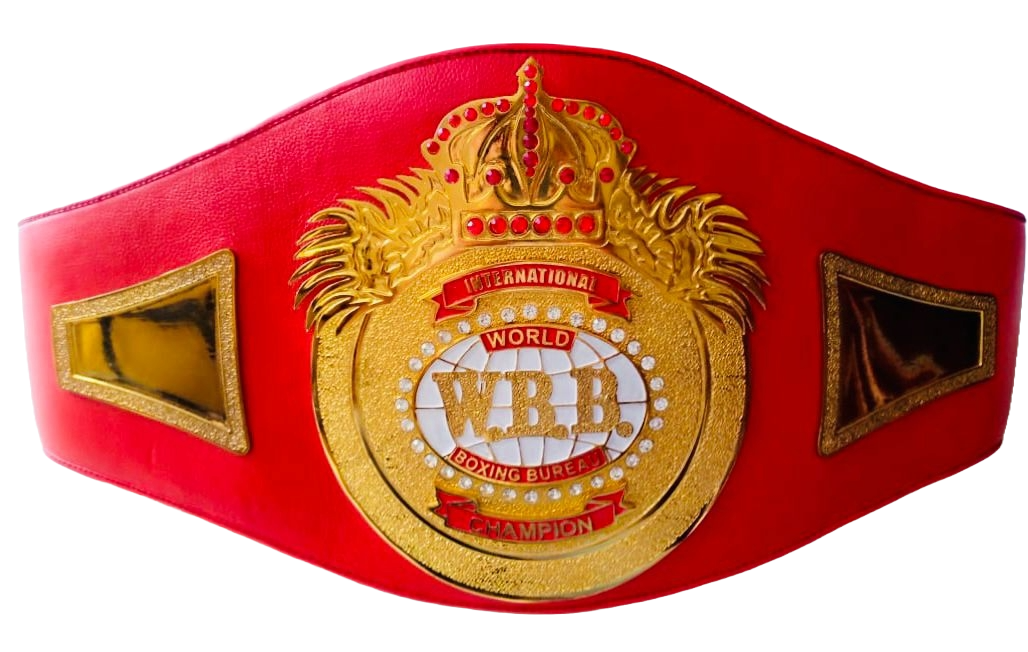
MEN & WOMEN'S INTERNATIONAL TITLE

MEN & WOMEN'S INTER-CONTINENTAL TITLE
Corporate Partner
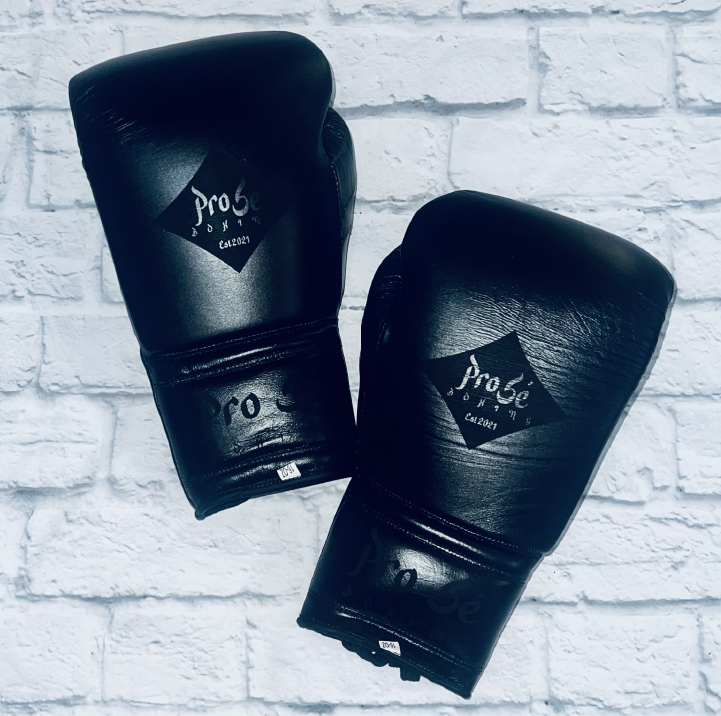



Pro Sé
Boxing Est. 2021
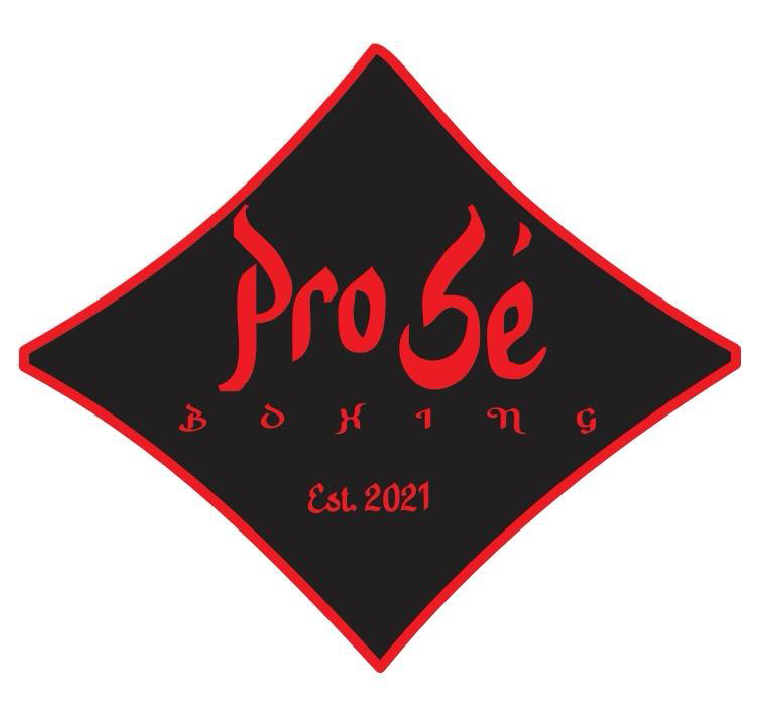
Pro Sé Boxing
Established in 2021, Pro Sé Boxing is becoming a popular brand in the sport of boxing. Our products cater to people who like to just train and to people who compete. We provide high quality products for reasonable prices. Visit Us…!!!
Get 20% Off All Purchases With Code WBB20
Our Gallery
“Diamonds In The Rough” Pro-Am Boxing event in Albany was an exciting night for both local boxing fans and the sport in general. With a strong mix of amateur bouts and title fights, the event offered a solid showcase of emerging talent, capped off by two thrilling knockout victories.
David Smith capturing the WBB Inter-Continental Welterweight Title is a big step in his career, and the fact that the fight ended in a l suggests he’s got serious power. It will be interesting to see how his career progresses—he’s definitely one to watch in the welterweight division.
Kasir Goldston winning the WBB Super Lightweight World Title is another exciting moment. Being a highly touted prospect, his victory here positions him as someone to keep an eye on in the global boxing scene. A knockout in a title fight speaks volumes about his potential.
The presence of Shawn Porter, a former two-time Welterweight Champion, shows the event’s connection to boxing royalty. His support is valuable for both the boxers and the overall credibility of the event. Having Benny the Butcher, a hip-hop sensation, involved adds a modern, cultural flair to the night—bringing in a broader audience and making it even more special.
And with the WBB’s new leadership under Al-Rahim Burke as CEO & President and Leon Muhammad as an advisor, it seems like the organization is in good hands. Their involvement promises that the WBB might continue to grow and make waves in the boxing world. It’s a fresh start to 2025, and it looks like there’s a lot to look forward to from the World Boxing Bureau
World Boxing Bureau, Albany, NY January 18, 2025
Crowd Champs
Contact Us
- worldboxingbureau@gmail.com
- @worldboxingbureau
- (973) 876-9169
